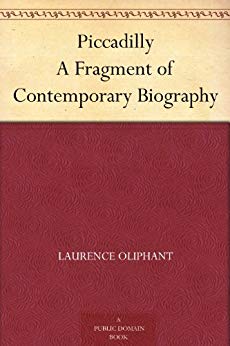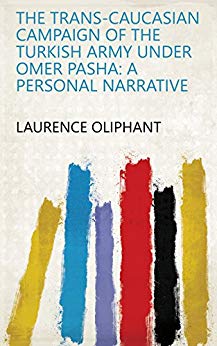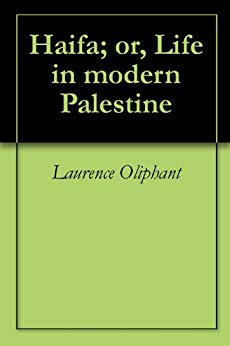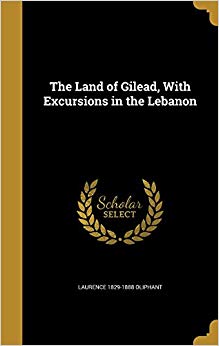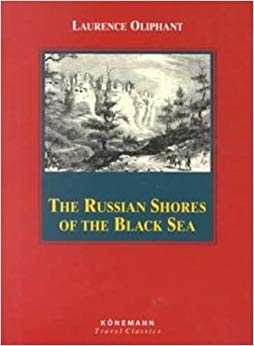Laurence Oliphant was a South African-born British author, traveller, diplomat and Christian mystic. He is best known for his satirical novel Piccadilly (1870).
Background
Laurence Oliphant was born in Cape Town, Cape Colony, the only child of Sir Anthony Oliphant (1793–1859), a member of the Scottish landed gentry and his wife Maria. At the time of his son's birth Sir Anthony was Attorney General of the Cape Colony, but he was soon appointed Chief Justice in Ceylon. Laurence spent his early childhood in Colombo, where his father purchased a home called Alcove in Captains Gardens, subsequently known as Maha Nuge Gardens.
Career
Between 1853 and 1861 Oliphant was secretary to Lord Elgin during the negotiation of the Canada Reciprocity Treaty in Washington, and companion to the Duke of Newcastle on a visit to the Circassian coast during the Crimean War.
In 1861 Oliphant was appointed First Secretary of the British Legation in Japan under Minister Plenipotentiary (later Sir) Rutherford Alcock. He arrived in Japan as a member of the entourage of Lord Elgin after visiting China, but on the evening of 5 July a night-time attack was made on the legation by xenophobic ronin. His pistols having been locked in their travelling box, Oliphant rushed out with a hunting whip, and was attacked by a Japanese with a heavy two-handed sword. A beam, invisible in the darkness, interfered with the blows, but Oliphant was severely wounded and sent on board ship to recover. He had to return to England after a visit to Tsushima Island, where he discovered a Russian force occupying a secluded bay and obtained its withdrawal.
Oliphant returned to England, resigned from the Diplomatic Service and was elected to Parliament in 1865 for Stirling Burghs. While he did not show any conspicuous parliamentary ability, he was made a great success by his novel Piccadilly (1870). He then fell under the influence of the spiritualist prophet Thomas Lake Harris, who in about 1861 had organised a small community, the Brotherhood of the New Life, which was settled in Brocton on Lake Erie, and subsequently moved to Santa Rosa, California.
After having been refused permission to join Harris in 1867, he was eventually allowed to join his community and Oliphant left Parliament in 1868 to follow Harris to Brocton. Members of the community were allowed to return to the outside world from time to time to earn money for the community. After three years Oliphant worked as correspondent for The Times during the Franco-German War, and afterwards spent several years in Paris in the service of the paper. There he met, through his mother, his future wife, Alice le Strange. They married at St George's, Hanover Square, London, on 8 June 1872. In 1873 Oliphant went back to Brocton with his wife and mother.
In 1879, Oliphant left for Palestine, where he hoped to promote Jewish agricultural settlement. Later, he saw these settlements as a means of alleviating Jewish suffering in Eastern Europe. Oliphant and his wife, Alice, settled in Palestine, dividing their time between a house in the German Colony in Haifa, and another in the Druze village of Daliyat al-Karmel on Mount Carmel.
In 1883, Oliphant wrote Altiora Peto. In 1884, he and his wife collaborated on Sympneumata: Evolutionary Forces Now Active in Man together. The following year, Oliphant wrote a novel, Masollam.
In December 1885, Oliphant's wife became ill and died on 2 January 1886. Oliphant, also stricken, was too weak to attend her funeral. He was persuaded that after death he was in much closer contact with her than when she was still alive, and believed that she inspired him to write Scientific Religion. In November 1887, Oliphant went to England to publish the book.
In 1888, he traveled to the United States and married his second wife, Rosamond, a granddaughter of Robert Owen in Malvern. The couple planned to return to Haifa, but Oliphant took sick at York House, Twickenham, England, and died there on 23 December 1888.
Personality
Physical Characteristics:
Night-time attack on the legation left him with permanent damage to one of his hands.




